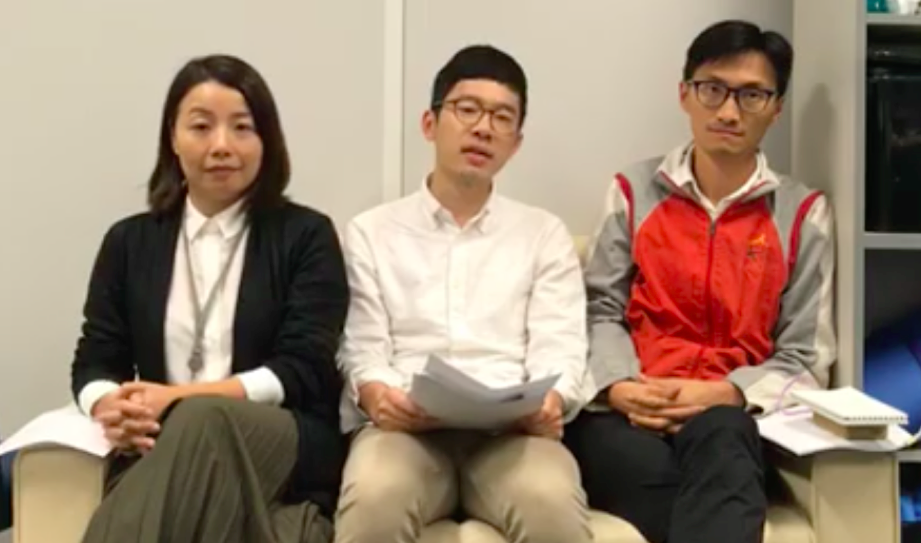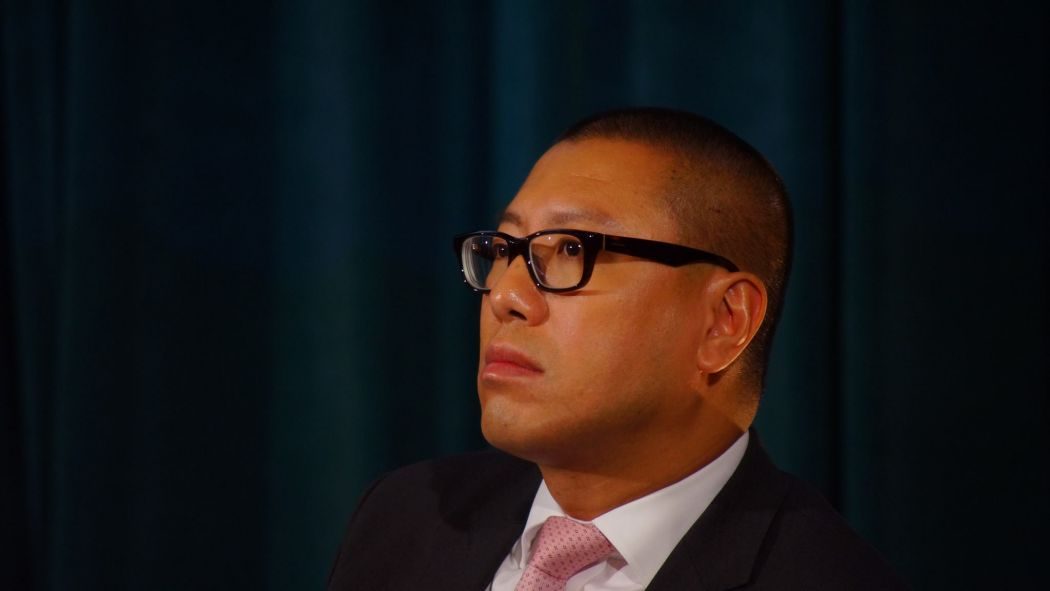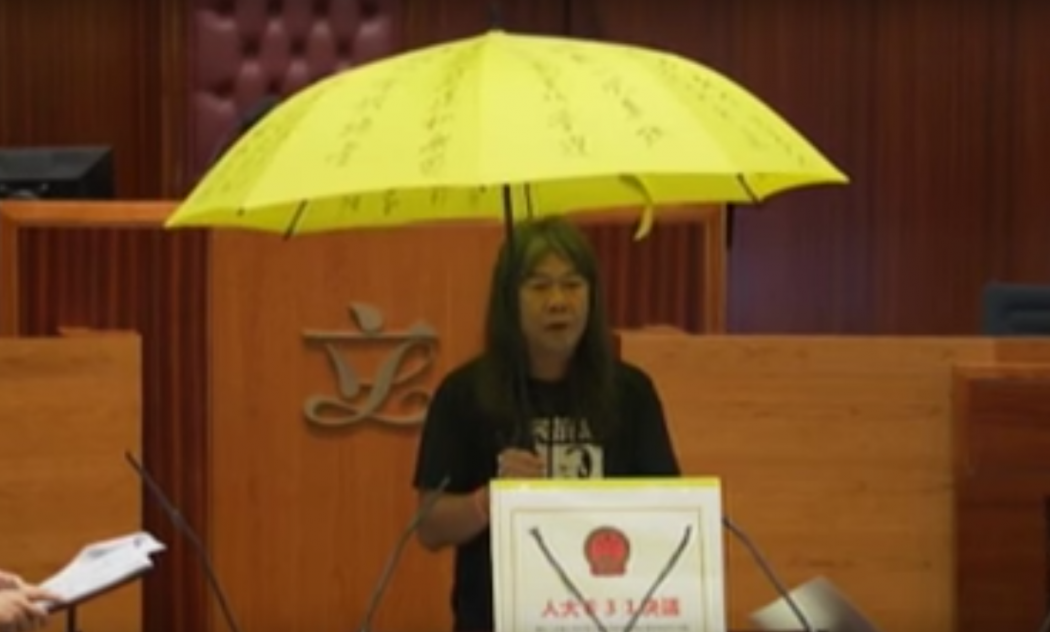Not all of the lawmakers whose oaths are being legally challenged may lose, according to some lawyers. It is despite the High Court’s ruling on Tuesday that two pro-independence lawmakers must be disqualified on the basis that they had “refused” to be sworn-in.
Since Beijing handed down a ruling on Hong Kong’s mini-constitution last Monday in response to the recent oath controversy, members of the public have filed for judicial reviews against lawmakers from the pro-democracy and pro-Beijing camps. Tuesday’s court ruling heightened concerns that more lawmakers may be disqualified.

But some lawyers say that the High Court’s ruling did not lay down specific guidelines which could be applied to other oath-related disputes, nor could the ruling allow for a prediction on how courts may decide future cases.
‘Higher risk’ for lawmaker Lau Siu-lai
Eric Cheung Tat-ming, HKU senior lecturer of law, said on an RTHK programme on Wednesday that – other than independent localist Lau Siu-lai – lawmakers whose oaths are being challenged before the court “are probably safe,” on the basis that the court requires “very strong evidence” before it can conclude that an oath-taker has declined to take the pledge.
He said that even if the oath administrator had rejected a lawmaker’s oath, the lawmaker can still argue that they were simply “not smart enough to pause long enough” before making protest statements after their oath.
This did not amount to an intentional refusal to take the oath, Cheung said.

Besides Lau and the two disqualified Youngspiration politicians, architecture sector lawmaker Edward Yiu Chung-yim and pro-Beijing lawmaker Wong Ting-kwong were asked to retake their oaths after the legislature’s president decided their pledges were invalid.
The situation of Lau, however, is less clear, Cheung said.
During last month’s swearing-in session, Lau read her oath in slow motion over a period of almost ten minutes. She later said on social media that the purpose was to deprive the pledge of its meaning by reading out each word in isolation.

Cheung said there is still room for debate on whether the evidence – including Lau’s social media post – is “clear-cut” enough to prove that the lawmaker had refused to be sworn-in. However, he said Lau faces a “higher risk” than other embattled lawmakers.
Lau told HKFP that she has no further comment on her social media post. She said earlier that it is Hong Kong’s judicial system and democracy movement – not the offices of a few lawmakers – that are at stake. Lau added that she will continue advocating self-determination.
‘Much less clear-cut’
Lawyer Kevin Yam of the Progressive Lawyers Group told HKFP that Tuesday’s ruling did not provide much guidance on other disputes as the case of the Youngspiration politicians is “in many ways relatively clear-cut on the fact” while others are “much less so.”
In his ruling, Mr Justice Thomas Au Hing-cheung said counsel for Youngspiration did not engage with the government’s argument that the duo had declined to take their oaths owing to their conduct, such as mispronouncing some words, displaying a “Hong Kong is not China” flag and crossing the index and middle fingers placed over a bible.
See also: Full, fair and comprehensive coverage of the oath-taking crisis.
Yam said the reason for not rebutting the government may be because the evidence was indisputable. “What can they really say to the court? What evidence can they really put in apart from the variations of accent?”

On the other hand, Yam said, the situations of other lawmakers are less unequivocal.
In the case of Lau, the pro-Beijing camp has said on multiple occasions that her social media post is strong evidence that she had refused to take the oath. But Yam said the question is how much weight and relevance the court will attach to the evidence, and it is difficult to predict as Tuesday’s ruling did not “do much to clarify” Lau’s situation.
In addition, Yam said, Mr Justice Au appeared to focus on the words spoken by the lawmakers when assessing whether they took the oath “solemnly.”
“Lau didn’t wrongly say any words but just pledged in a certain manner which some deemed unsatisfactory,” Yam said.
“Whenever the judge talks about the words and manner of taking the oath, it is by reference to the Oaths and Declarations Ordinance,” he said. “And if you are talking about the manner by reference to that ordinance, it is about things like holding a bible in the case of a religious swearing-in, not about whether holding an umbrella [is allowed or not].”
On this basis, Yam said that Lau’s prospects are “uncertain” as her impugned manner is open to debate.

As for other lawmakers who used props during the swearing-in session such as Leung Kwok-hung and Shiu Ka-chun, Yam said: “I would have thought that it would be farfetched with their cases.”
“They said the words in a clear way. Holding an umbrella… cannot be fairly said to be an act of rejecting or refusing to take the oath,” he said.
Eric Cheung said that the government’s lenient approach to oath-taking had encouraged politicians to make political statements during swearing-in. But following this oath dispute, the legislature will have to handle their oath-taking conduct more strictly, and the court will also need to consider how to draw the line of “declining” to take an oath in future cases.
Given that lawmakers are democratically elected, Cheung asked: “Is it really game-over if a lawmaker does something silly once?”
Barrister Ronny Tong declined to comment as to which lawmakers will likely lose a lawsuit, but said “we can probably guess.”
